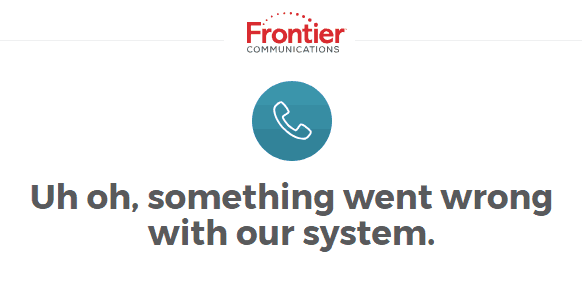
Frontier is accused of not delivering the internet speeds it sells to consumers.
The Federal Trade Commission, along with law enforcement agencies from six states, today sued Frontier Communications, alleging that the company did not provide many consumers with internet service at the speeds it promised them, and accepted customer orders for internet speed tiers the company had no intention of actually providing.
In the complaint, the FTC and its state partners allege that Frontier advertised and sold internet service in several plans, or tiers, based on download speed. Frontier has touted these tiers using a variety of methods, including mail and online ads, and has sold them to consumers over the phone and online.
In reality, the FTC alleges, Frontier did not provide many consumers with the maximum speeds they were promised and the speeds they actually received often fell far short of what was advertised.
“When Frontier sends mail to a consumer’s residential address, or displays digital advertisements to consumers with residential addresses known to Frontier, Frontier has access to information indicating that it is unable to provide certain of its DSL Internet speed tiers to some consumers, based on factors such as the address’s distance from Frontier’s networking equipment, which Frontier can easily compute or estimate for many addresses,” the complaint stated. “In numerous instances, Frontier has sent consumers advertisements for DSL Internet service at speed tiers that Frontier could not provide to them.”
In early 2019, a management consulting firm analyzed, at Frontier’s direction and with Frontier’s participation, Frontier’s proprietary network data and internal records for nearly 1.5 million then-current DSL subscribers. This analysis found that approximately 440,000 of Frontier’s DSL subscribers, or nearly 30% of the population analyzed, were “potentially” “oversold” on speed tiers that
exceeded the actual speeds Frontier provided to them.
Frontier is also accused of violating Wisconsin state law by making demonstrably false statements about its service reliability. Frontier’s advertisements represent to consumers that they can receive uninterrupted “crystal-clear” phone service with “99.9% reliability.” But the lawsuit claims Wisconsin consumers routinely suffer from sound quality issues with their service. For example, consumers have complained that they experience a buzzing or static sound that makes hearing the other caller very difficult, if not impossible. The suit also claims that between 2018 and 2019, Wisconsin customers endured over 200,000 landline outages, with over 25,000 left unrepaired after 24 hours.
The FTC’s complaint was filed with the attorneys general from Arizona, Indiana, Michigan, North Carolina, and Wisconsin, as well as the district attorneys’ offices of Los Angeles County and Riverside County on behalf of the State of California. The plaintiffs seek court costs and restitution for consumers affected by Frontier’s allegedly deceptive behavior.
The Commission vote authorizing the staff to file the complaint was 4-0. The complaint was filed in the U.S. District Court for the Central District of California.


 Subscribe
Subscribe
This does not surprise me actually. When I had their bonded 24 Meg, they had both pairs provisioned at just over 13000 / each. Frontier failed to account for tcp/ip and network overhead – setup via DHCP / mlppp bonding. Actual speed was about 22 Meg service..
The dsl line stats showing bonded 24 Meg.. actual 22 Meg after overhead.
Dsl line stats: